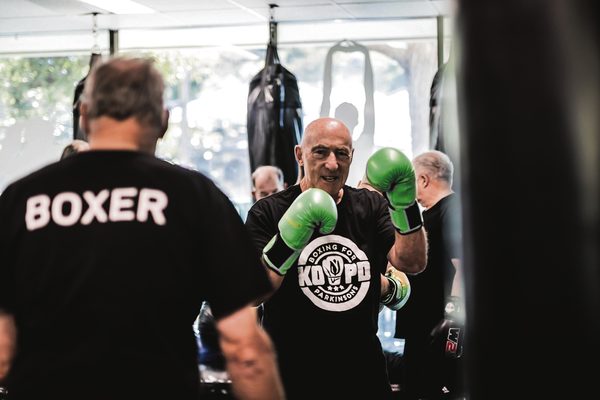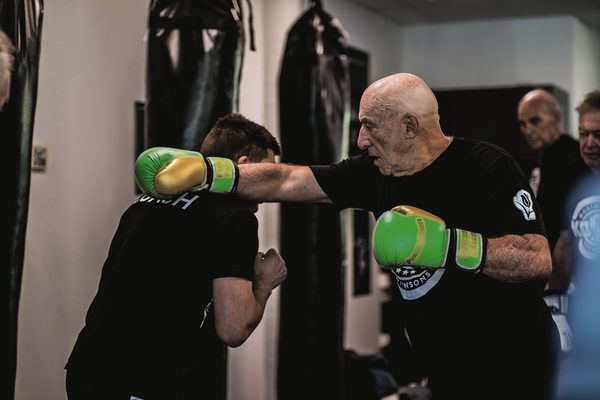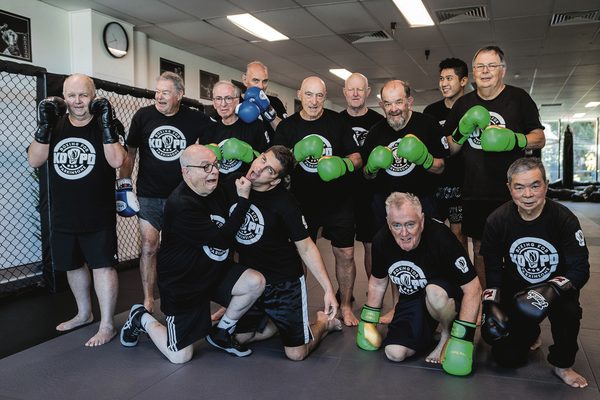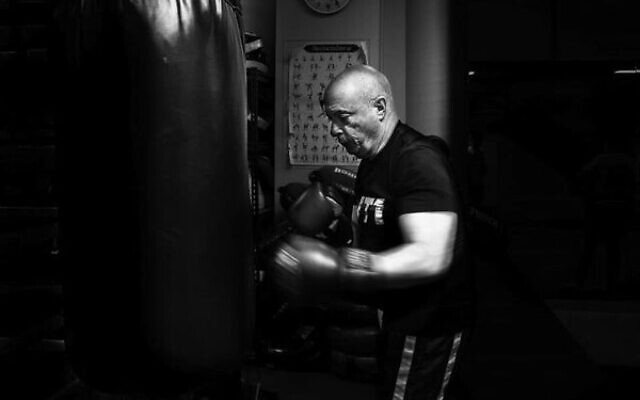The boxing exercise program giving life back to those living with Parkinson’s disease
Non-contact boxing classes help reduce and even delay the symptoms of Parkinson's disease.
Parkinson’s disease (PD) is a severe, progressive, neurological illness that affects the body’s muscles, resulting in slow movements, muscle rigidity and often a resting tremor.
It can affect walking gait, stability and strength, and cause depression and anxiety.
Withdrawal from social activities often follows and the person with Parkinson’s becomes isolated. Carers are also affected, and PD can be a major stress factor in relationships.
At the age of 50, Adrian Unger, now a retired pharmacist, was bored with conventional gyms and needed a change. He tried boxing and was immediately “hooked”.
He trained for fitness, not competition. Little did he know that he would be involved in a life-changing initiative for people with Parkinson’s (PwP).
At 58, Unger was diagnosed with PD but continued with his boxing. The disease forced an early retirement and he joined a Chatswood gym – VT1 Martial Arts Academy.
Both Unger and the head coach, Dylan Resnekov, were astonished that Unger’s symptoms remained minimal over the years and did not progress like they had seen in others.
Unger had personal experience with the disease, as his dad had spent 25 years in a wheelchair because of his PD. They came to the realisation that the regular boxing exercise was probably why he fared so well.
Passionate to help others, Unger persuaded the Resnekov brothers, who owned the gym at the time, to start a non-contact exercise program based on actual boxing techniques for PwP. It became KOPD or Knock Out Parkinson’s Disease (formerly Punchin’ Parkos). Resnekov, a world champion in Muay Thai originally mapped out the course.
KOPD has helped PwP and their carers by providing not only exercise, but also a supportive community, overcoming their sense of isolation and a place where new friendships, solidarity, laughter and hope are kindled.
At KOPD, the program includes life skills, fun games and real boxing techniques.
A University of Indianapolis study found PwP showed both short- and long-term improvements in balance, gait, performing daily living activities and quality of life after doing a boxing program.
At this stage there is no cure for PD. However, boxers are encouraged to step out of their comfort zone, and perform repetitive and complex exercises to stimulate neural plasticity, which is responsible for the positive effects.
Nate Lum, an exercise physiologist with boxing skills, has introduced two new popular sessions over the past 12 months – the strength and conditioning program, and balance, mobility and gait for PD.
In addition, Lum has run a series of worldwide recognised clinical tests to measure the function and quality of life in PwP and repeated the tests 12 weeks later, after the PwP had been exercising. Three out of four tests showed significant improvements.
Boxing improves coordination, power, speed and reaction times, balance and posture, gait and mobility and voice projection particularly in those who are newly diagnosed.
Join the fight against PD, one punch at a time. Neither gender nor age are barriers.
Enhance your medical and surgical treatments with exercise and the KOPD program.
Register for a free KOPD open and information day, Sunday, March 26, 10am-12pm.
Dr Natalie Allen, Uni of Sydney physiotherapy lecturer who specialises in exercise and PD, will be on hand to bring everyone up to date on the current research, and there will be a demonstration of the techniques
and ample time for Q&A.
Parking is available and easy access to gym for walkers and wheelchairs. Disabled toilet facilities available on gym level. Register at kopd.com.au





comments